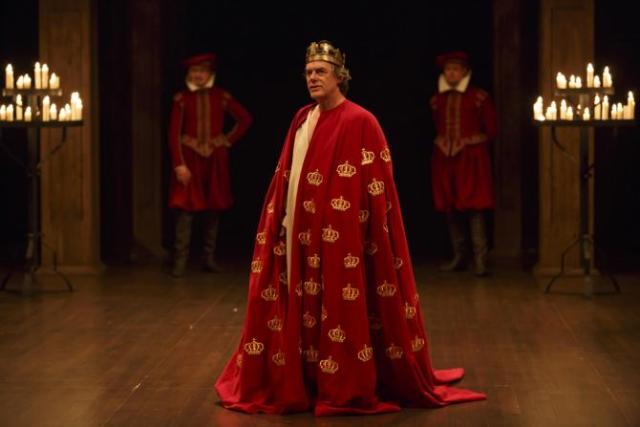
In conjunction with the 800th anniversary of the Magna Carta, several companies have revived Shakespeare’s drama about King John, the monarch who signed that momentous document. He was a flawed ruler, and the play is one of Shakespeare’s lesser works, but let’s give him some attention in this multi-centennial year.<
On June 15, 1215, he promised access to swift justice and protection from searches and from illegal imprisonment. The English judge Lord Denning described it as "the greatest constitutional document of all times, the foundation of the freedom of the individual against the arbitrary authority of the despot.” And UNESCO hails it as “the cornerstone of English liberty, law and democracy.”
King John is in the news because of the Magna Carta anniversary and because he was an inspiration for Henry VIII’s break with the Catholic Church that’s dramatized in Wolf Hall on stage and television. Long before Henry VIII, John challenged the authority of a pope.
Not brought up expecting to rule, John seized the throne after his older brother, Richard the Lion-Hearted, was struck by an arrow from a crossbow and died at age 42. John was an impulsive and paranoid man who lost territory to the French and imposed huge taxes on barons to pay for his unsuccessful battles. They revolted and captured London whereupon John agreed to the terms of the Magna Carta.
In a Stratford Festival production now in movie theaters in HD, the title character is portrayed with a sense of cranky entitlement by Tom McCamus. The most charming character in the play is Philip the Bastard (Graham Abbey), the illegitimate son of the dead King Richard, who acts as a bridge between the audience and the events that unfold, and he occasionally breaks the fourth wall. At the start of the play, King Philip of France leads his forces against John, seeking to put John’s young nephew Arthur on the English throne. Shakespeare drew a parallel between those competing claims to the throne and a similar problem in his own time. The legitimacy of Queen Elizabeth’s rule, you will recall, was challenged by her cousin Mary, the queen of the Scots. John's rival to the throne, Arthur, was the son of John's elder brother, just as Elizabeth's rival Mary was the descendent of Henry VIII's elder sister. The plot is complicated, and Shakespeare never got around to mentioning the Magna Carta, yet there are several vivid moments that make the play worth seeing. In one of them, Lady Constance (Seana McKenna) wails: “I am sick . . . a widow, husbandless, subject to fears . . . my grief's so great that no supporter but the huge firm earth can hold it up.” Her rant is a tour-de-force but so over-the-top that the French king admonishes her: “You are as fond of grief as of your child.”
The most emotional scene involves her son (Noah Jalava) fighting for his life with a distraught courtier Hubert (Wayne Best) who has been ordered by the king to gouge out the boy’s eyes. Arthur pleads with a quiet grace for mercy, playing on Hubert’s affection for him.
Arthur then dies accidentally when he jumps from a castle wall. The nobles believe he was murdered by the king. John is poisoned by a monk who was angered by the king’s opposition to the pope. At John’s death, the English nobles swear allegiance to John's son Prince Henry, and the Bastard reflects that this episode teaches that internal bickering could be as perilous to England's fortunes as foreign invasion. Shakespeare made that point clearly and strongly, which must have pleased his patroness, the queen.
Whatever the virtues of her reign, Queen Elizabeth supervised an abridgement of individual freedoms with the excuse that there was grave danger from spies. (Maybe that’s why Shakespeare omitted mention of the Magna Carta in this play.) It’s notable that the issue of protection from governmental intrusion into citizen’s lives is again a hot topic, eight centuries later.
